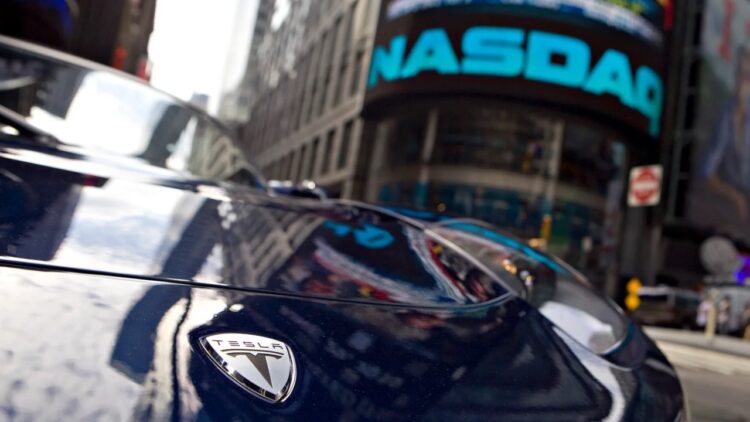Tesla Inc. has long been a hot topic in the financial world, with its innovative electric vehicles, cutting-edge technology, and a charismatic CEO, Elon Musk, who never fails to captivate the public’s attention. However, as the company continues its meteoric rise, Wall Street analysts are starting to raise red flags about the sustainability of Tesla’s valuation. In this blog post, we will explore the concerns expressed by these analysts and why they believe Tesla’s current valuation may not be justified.
You may also like: Elon Musk Says ‘We Dug Our Own Grave with Cybertruck,’ Shares New Delivery Date
Tesla’s Remarkable Ascent
Over the past decade, Tesla has become a household name, transforming the automotive industry and pioneering the electric vehicle revolution. The company’s stock price has mirrored its extraordinary success, soaring to unprecedented heights. Tesla’s market capitalization now exceeds that of many established automakers combined, and it’s a force to be reckoned with in the tech industry.
Wall Street’s Skepticism
Despite Tesla’s remarkable journey, Wall Street analysts are expressing growing skepticism regarding the company’s valuation. Several key concerns have emerged:
- Elevated Price-to-Earnings (P/E) Ratio: Tesla’s P/E ratio, which measures the price investors are willing to pay for each dollar of earnings, has consistently been well above the industry average. Analysts argue that this premium valuation implies overly optimistic growth expectations, making Tesla vulnerable to any setbacks.
- Competition is Growing: While Tesla was once a pioneer in the electric vehicle market, it is now facing fierce competition from both traditional automakers and new entrants. This intensifying competition could impact Tesla’s market share and profitability.
- Regulatory Risks: The electric vehicle industry is heavily regulated, with government policies and incentives playing a significant role in Tesla’s success. Changes in regulations or reductions in subsidies could affect Tesla’s bottom line.
- Valuation Metrics: Traditional valuation metrics, such as discounted cash flow analysis, suggest that Tesla’s stock is overvalued. Analysts are concerned that the market is not accurately reflecting the company’s true intrinsic value.
- Supply Chain Vulnerabilities: Like many other companies, Tesla has experienced supply chain disruptions, which have impacted production and delivery timelines. Wall Street worries that these vulnerabilities could hinder the company’s ability to meet its growth targets.
- Is There a Bubble?: Analysts who are skeptical of Tesla’s valuation are not necessarily claiming that the company is a bubble waiting to burst. However, they do argue that current valuations may not be sustainable in the long term, especially if the market’s expectations for growth are not met.
You may also like: Tesla Cybertruck Spotted Towing A Trailer For The First Time

You may also like: First-Ever Tesla Cybertruck to be Sold Fetches a Whopping $400,000
What We Think
Tesla’s journey has been nothing short of remarkable, and it has undoubtedly disrupted the automotive industry. Nonetheless, Wall Street analysts are becoming increasingly cautious about the sustainability of Tesla’s valuation. While the company’s growth has been impressive, it’s essential for investors to consider the risks associated with its current stock price Investors should approach the situation with caution and carefully evaluate their investment in Tesla, keeping in mind that the stock market can be subject to sudden shifts and corrections. The future of Tesla and its valuation remain uncertain, and only time will reveal whether the company can continue to defy gravity on Wall Street.



